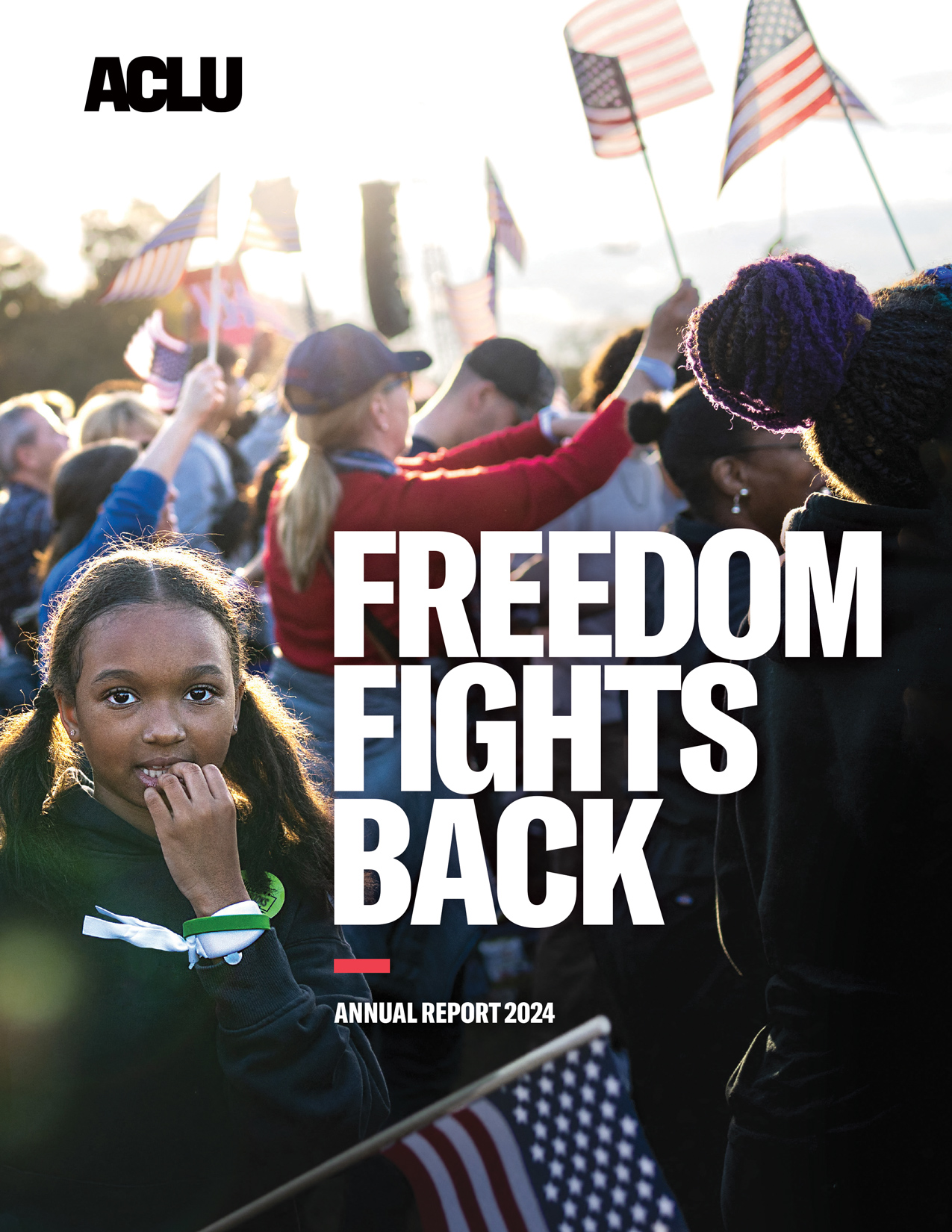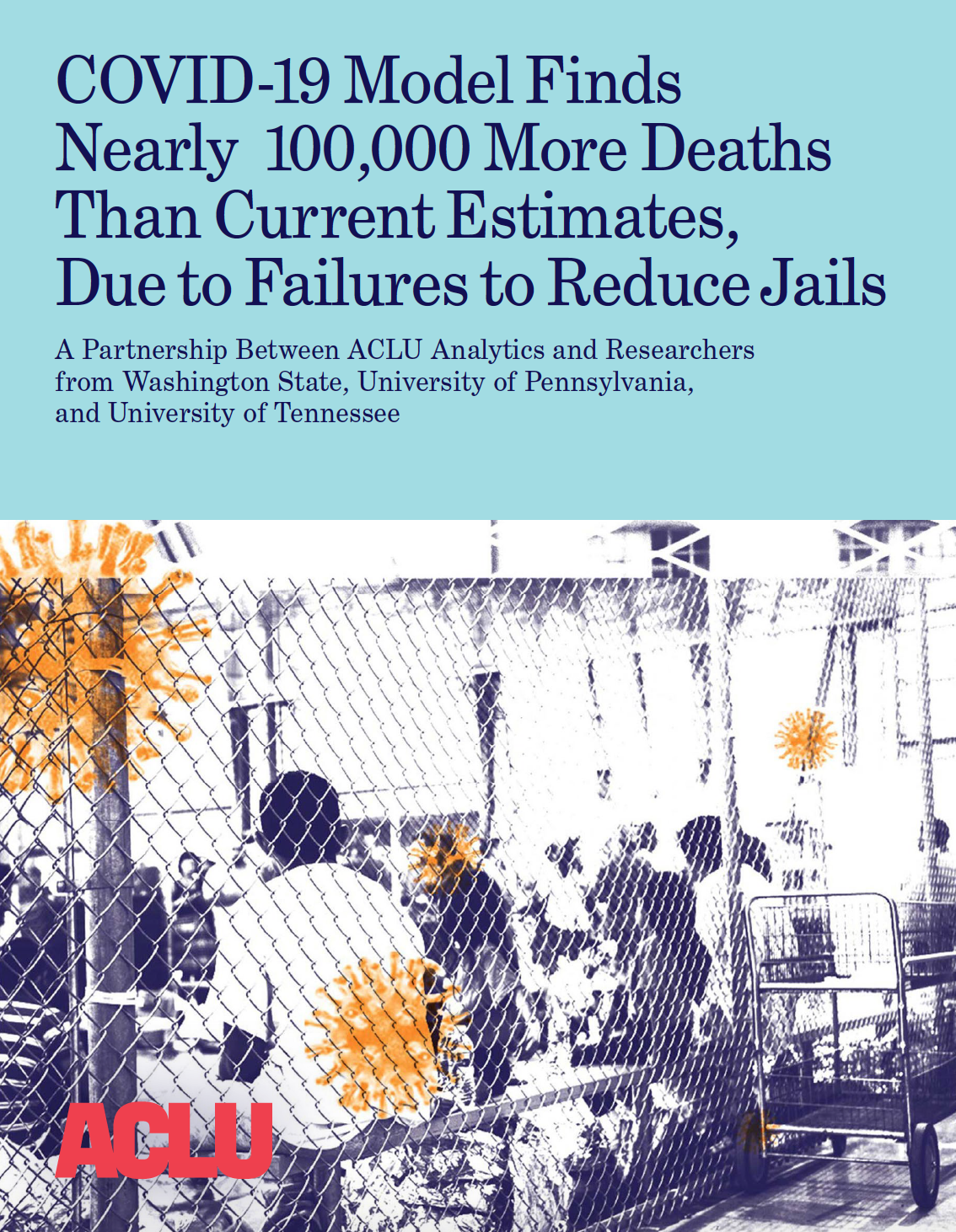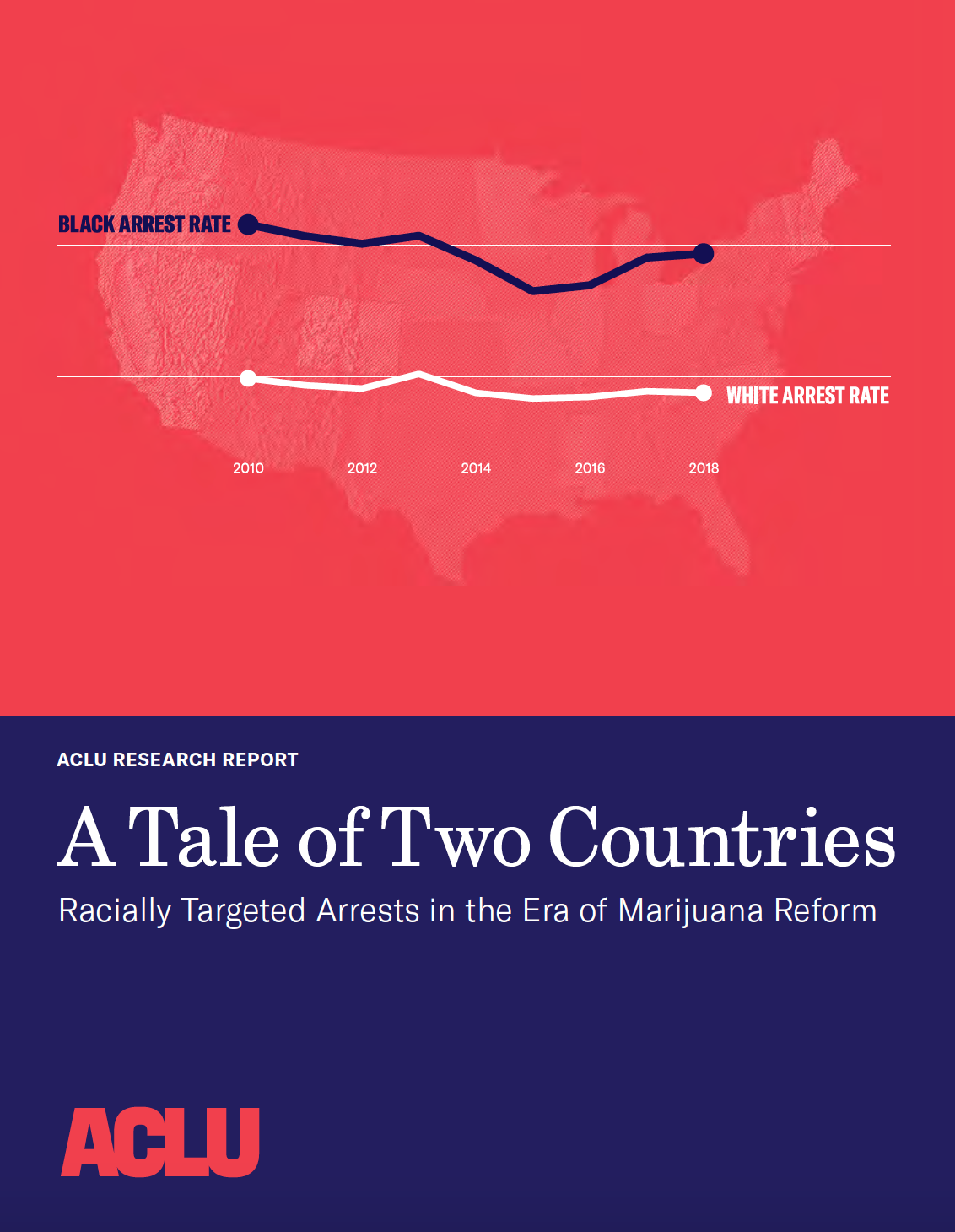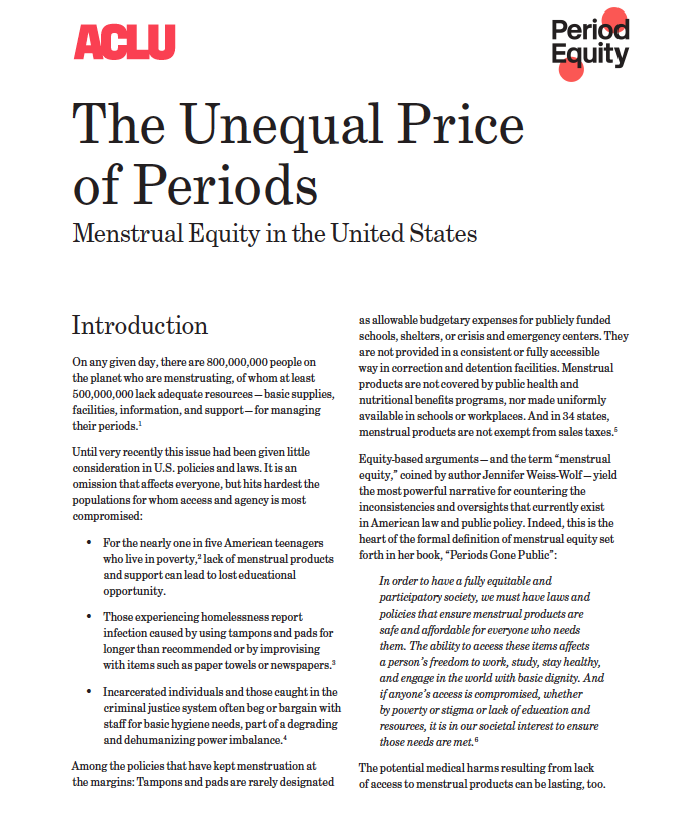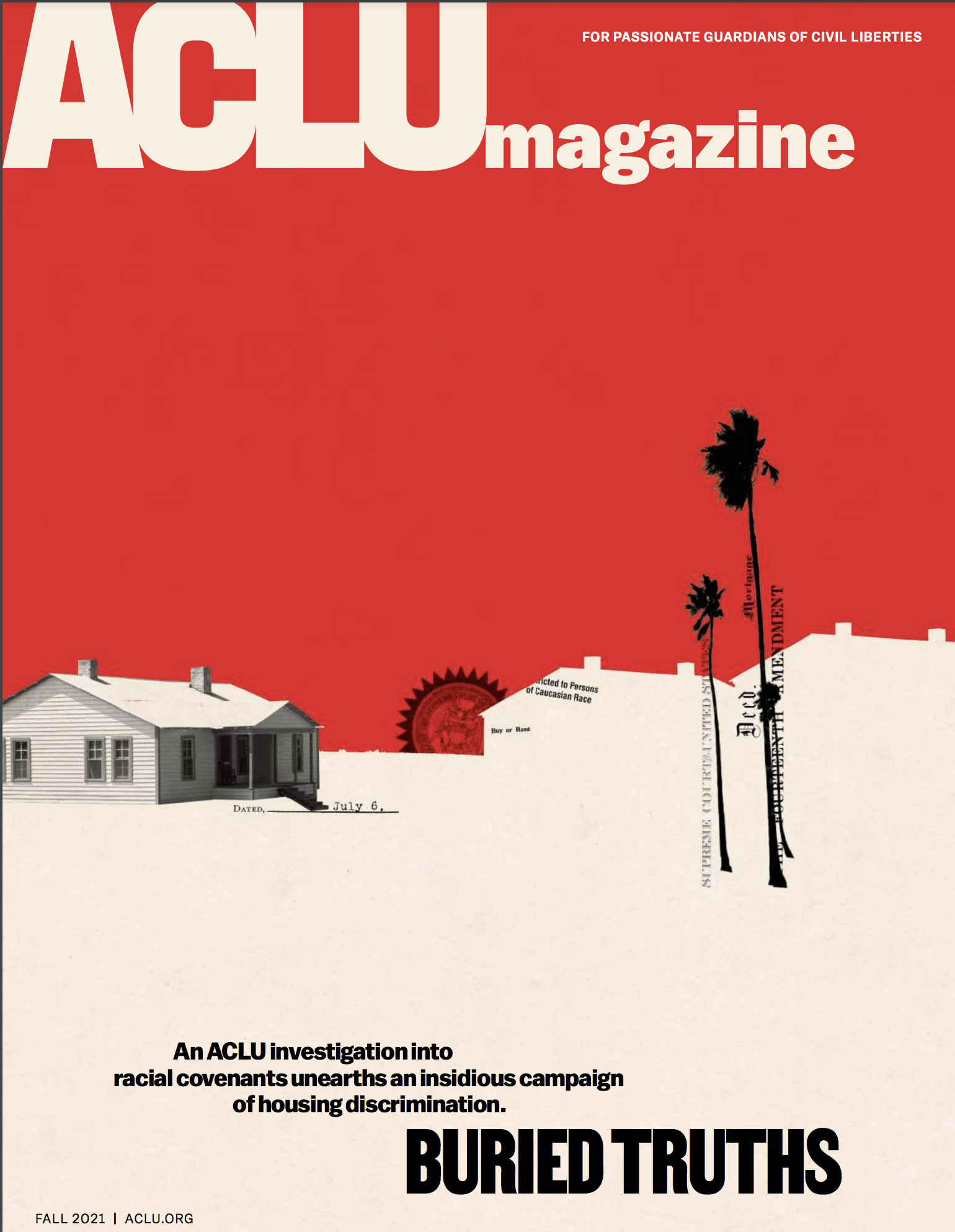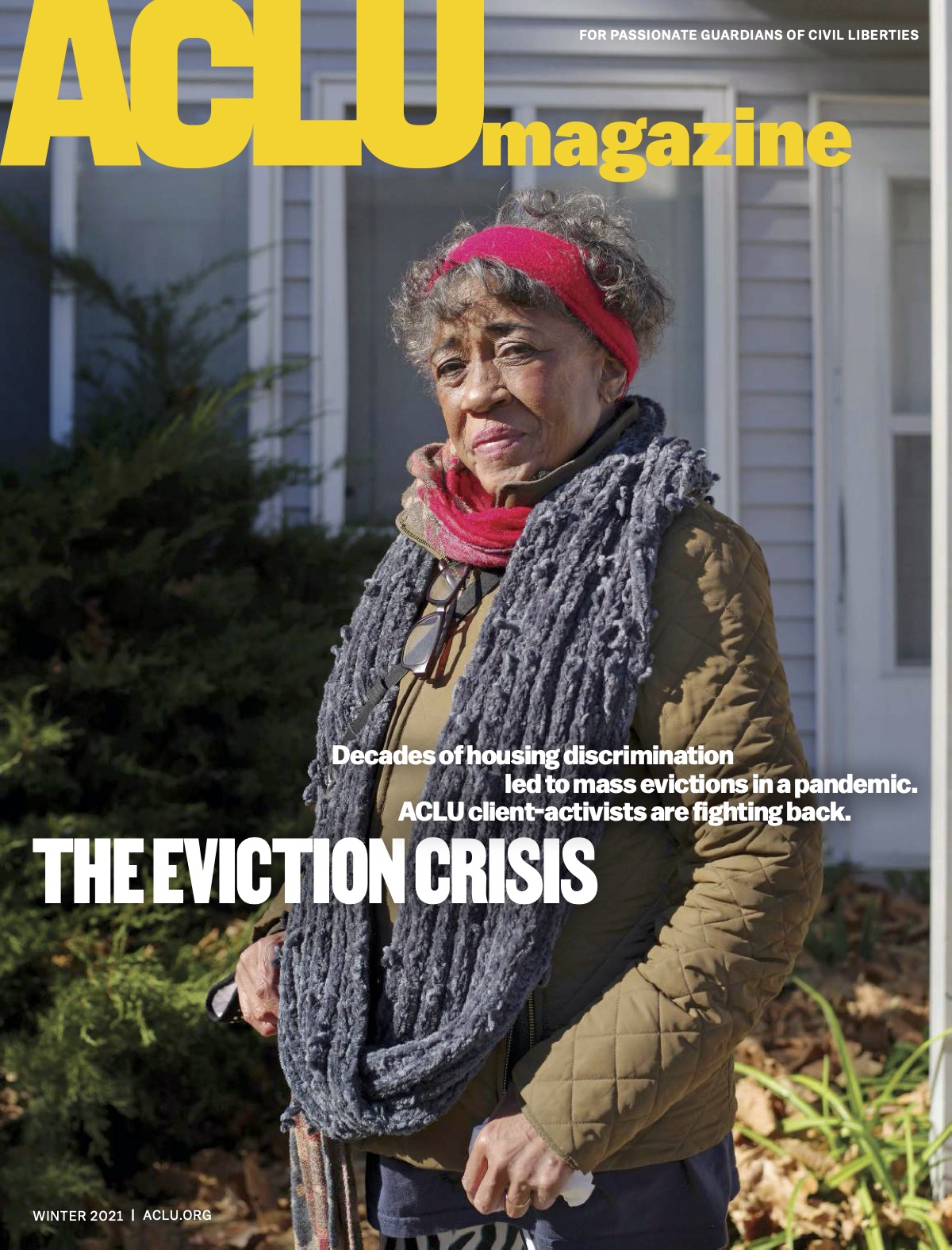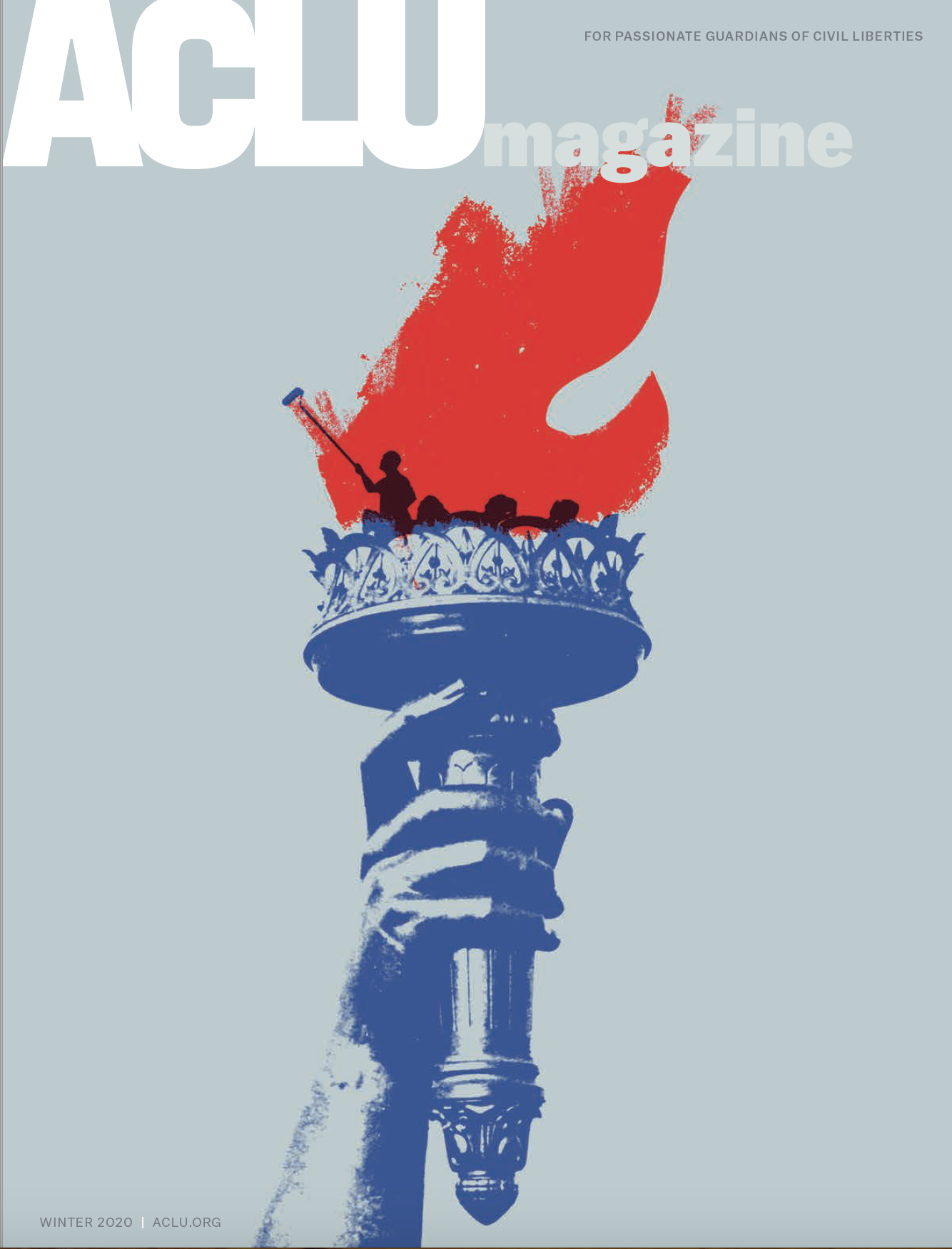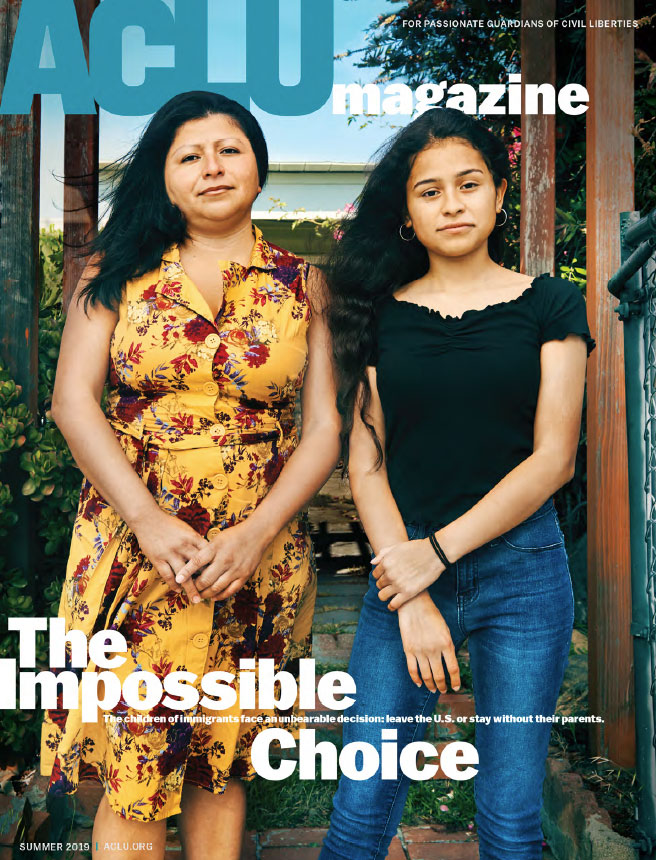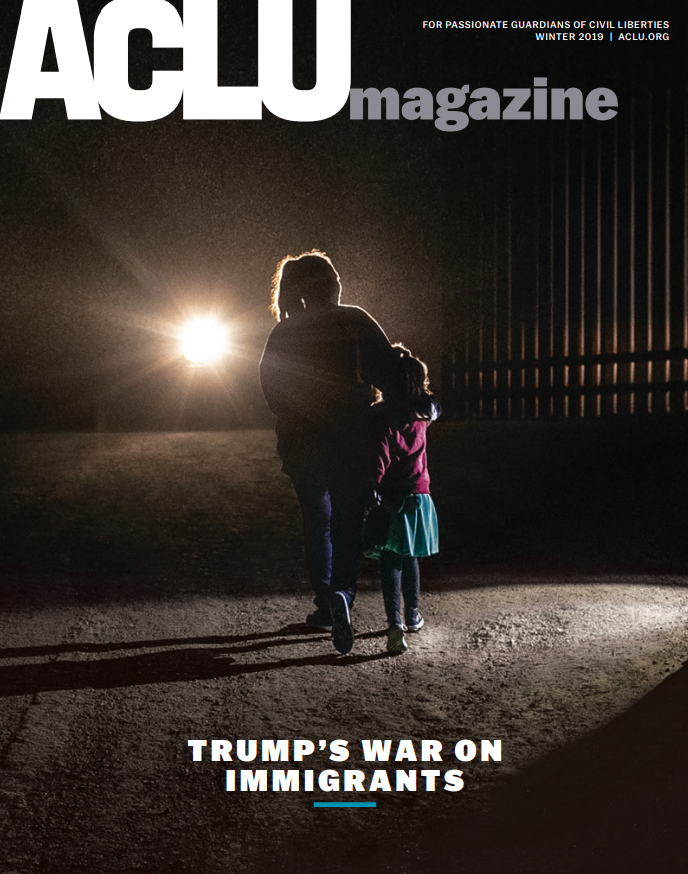Research & Publications
Access in-depth resources and analysis published by the ACLU regarding our most pressing civil liberties issues.
ACLU 2024 Annual Report
The ACLU’s 2024 annual report highlights how the organization worked around the clock this year to safeguard voting rights ahead of the November elections, protect bodily autonomy, defend free speech, and much more. Alongside breakdowns of the ACLU’s key wins and efforts throughout 2024, the report tells the stories of ACLU activists, advocates, and clients who are on the front lines of this fight.
All Publications
Search will open in a new tab using DuckDuckGo
Justice-Free Zones: U.S. Immigration Detention Under the Trump Administration
Justice-Free Zones: U.S. Immigration Detention Under the Trump Administration, a research report from the American Civil Liberties Union, Human Rights Watch, and the National Immigrant Justice Center, provides an in-depth examination of the state of immigrant detention. Through visits to five detention facilities, interviews with 150 detained people, and analysis of government data, this report shines a light onto our nation’s treatment of immigrants. Specifically, the findings illustrate how the immigrant detention system has grown since 2017, the poor conditions and inadequate medical care — even before the COVID-19 outbreak, and the due process hurdles faced by immigrants held in remote locations.
Flattening the Curve: Why Reducing Jail Populations is Key to Beating COVID-19
COVID-19 could claim the lives of approximately 100,000 more people than current projections stipulate if jail populations are not dramatically and immediately reduced, according to a new epidemiological model released by the ACLU and academic research partners. The findings indicate that — even if communities across the United States continue practicing social distancing and following public health guidance — we will still experience much higher death rates if no substantial action is taken to reduce jail populations. The United States' unique obsession with incarceration has become our Achilles heel when it comes to combatting the spread of COVID-19.
The ACLU model used data pulled from more than 1,200 midsize and large jail systems around the country, whose surrounding communities account for 90 percent of the U.S. population. It found that, unequivocally, keeping people out of jail saves lives — both inside the jail and in the surrounding community. Lives are at stake. The time to act is now.
A Tale of Two Countries: Racially Targeted Arrests in the Era of Marijuana Reform
This ACLU research report, A Tale of Two Countries: Racially Targeted Arrests in the Era of Marijuana Reform, details marijuana arrests from 2010 to 2018 and examines racial disparities at the national, state, and county levels. Updating our previous report, The War on Marijuana in Black and White, that examined arrests from 2000 to 2010, this report reveals that the racist war on marijuana is far from over. More than six million arrests occurred between 2010 and 2018, and Black people are still more likely to be arrested for marijuana possession than white people in every state, including those that have legalized marijuana. With detailed recommendations for governments and law enforcement agencies, this report provides a detailed road map for ending the War on Marijuana and ensuring legalization efforts center racial justice.
The Unequal Price of Periods
Access to menstrual products is a dignity and equity issue, but every day people across the United States are unable to access the menstrual products they need. Local, state, and federal government policies cause or exacerbate inequitable access by imposing sales taxes on menstrual products, refusing to provide products in institutions of incarceration such as prisons and jails, exempting menstrual products from public health benefits programs, and not making products uniformly available in public schools and homeless shelters.
This issue brief from the ACLU and Period Equity provides an overview of the issue of menstrual equity in the U.S. It demonstrates the inequities of access to menstrual products, specifically for those living in poverty and those who are incarcerated, and documents the damaging medical and emotional consequences of this lack of access. The brief also reviews current law, including a detailed state-by-state accounting of menstrual equity legislation. Lastly, the brief provides recommendations for improving menstrual equity in the U.S. This brief is part of a broader effort from the ACLU and Period Equity to advance menstrual equity legislation. For specific advocacy tools and resources, see the ACLU and Period Equity’s Menstrual Equity Toolkit.
Worse Than Second-Class: Solitary Confinement of Women in the United States
This report provides an updated look on women held in solitary confinement in the United States. Since the ACLU published its first report on women in solitary in 2014, some things have changed —but many things have not. More attention has been placed on women in prison and on solitary confinement in general, but still, little attention has been paid to the specific plight of women in solitary confinement. Vulnerable populations, including pregnant people and women with mental illness, are still being placed into solitary confinement, and not enough is being done to enforce limitations on such placements.
This current report provides facts and data about women in solitary confinement in general, as well as specific populations of women who are especially vulnerable to the harms of solitary confinement, including girls, older women, transgender women, and women in immigrant detention. We also share insights from interviews with three survivors of solitary confinement and a clinical social worker about the experiences and impact of solitary confinement. Finally, the report includes both “reasons to hope”—reforms that have limited the use of solitary confinement in the United States—and recommendations for what must be done to continue combating this urgent, pervasive problem. It is critical to address the treatment of women in prison— especially those women subjected to the social and sensory deprivation of solitary confinement.
ACLU Magazine
Published twice a year, ACLU Magazine shares updates on the ACLU's critical litigation and advocacy work across the country and tells the stories of the activists, attorneys, and clients at the heart of each case and campaign. To receive ACLU Magazine by mail, become a monthly donor today.
